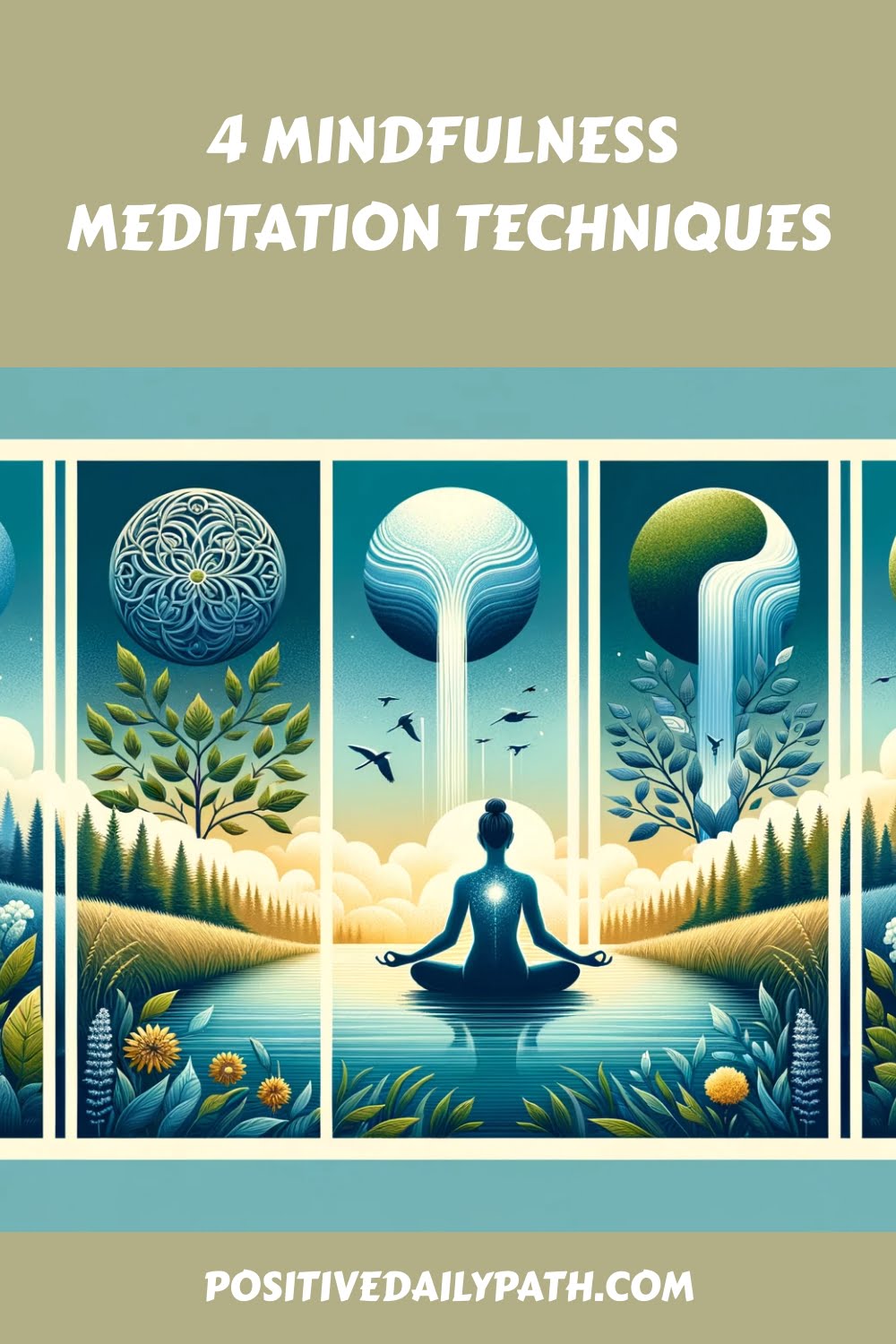While some may question the efficacy of meditation, scientific studies validate its benefits.
This article will introduce four mindfulness meditation techniques – Breath Awareness, Body Scan, Walking Meditation, and Loving-Kindness Meditation.
These practices transcend stress reduction, offering increased mental clarity, emotional intelligence, and a boost in productivity.
Harness the power of mindfulness to cultivate resilience, focus, and a more profound sense of self-awareness in your personal and professional life.
Key Takeaways
- Breath awareness meditation is a fundamental technique that enhances mental clarity and cultivates resilience and self-awareness.
- Body scan meditation fosters heightened bodily awareness, inner tranquility, and a powerful, mindful presence.
- Walking meditation emphasizes conscious movement, breath synchronization, and reconnecting with nature for serenity and focus.
- Loving-kindness meditation fosters self-compassion, empathy, emotional balance, and dismantles barriers of hostility.
Exploring Breath Awareness Meditation
In the realm of mindfulness meditation, breath awareness meditation emerges as a fundamental and accessible technique, demanding nothing more than focussing on one's natural breathing pattern. Understanding the inhalation-exhalation dynamics can empower individuals to effectively harness breath count benefits.
This practice fosters tranquility and control, strengthening one's command over the mind and body, thereby offering a potent tool for personal mastery.
Understanding Body Scan Meditation
Transitioning to body scan meditation, this technique requires the practitioner to systematically and mentally scan each part of the body from head to toe. This fosters a heightened sense of bodily awareness and inner tranquility.
By maintaining a consistent scan posture, the practitioner amplifies sensory awareness. This allows them to connect deeply with physical sensations and subtle energies.
This profound connection cultivates a powerful, mindful presence.
The Art of Walking Meditation
Often, practitioners further refine their mindfulness by integrating walking meditation into their routine, an approach that emphasizes conscious movement and breath synchronization.
- Exploring nature's impact: Reconnecting with natural elements fosters serenity and focus.
- Incorporating daily routine: Making meditation a lifestyle choice ensures consistency.
- Conscious step-taking: Each step taken mindfully strengthens the connection between body and mind, empowering practitioners.
Mastering Loving-Kindness Meditation
As a significant number of mindfulness practitioners have found, the practice of loving-kindness meditation can be a powerful extension of walking meditation, fostering deeper self-compassion and empathy towards others.
Mastering this technique, pivotal in compassion cultivation, can guide us towards emotional balance. It empowers us to dismantle barriers of hostility, replacing them with an unshakeable fortress of love and understanding.
Frequently Asked Questions
What Are the Potential Mental Health Benefits of Incorporating Mindfulness Meditation Into My Daily Routine?”
Incorporating daily mindful practices can significantly impact mental health, leading to stress reduction and enhanced emotional stability. These practices may foster resilience, promote a positive mood, and improve overall psychological well-being.
Are There Any Risks or Side Effects Associated With Mindfulness Meditation?”
While meditation generally promotes wellness, there are potential unintended consequences. For instance, individuals with trauma histories may experience distressing emotions. Therefore, Meditation Precautions should be considered to ensure safe and beneficial practice.
Can Mindfulness Meditation Be Used as a Tool for Pain Management?”
Yes, mindfulness meditation, with its origins in ancient practices, can be a powerful tool for pain management. Various meditation types focus on the mind's ability to change the perception of pain, providing relief.
What Is the Scientific Evidence Supporting the Effectiveness of Mindfulness Meditation?”
Scientific evidence supports mindfulness meditation's effectiveness through observed changes in neuroplasticity and alterations in biochemistry, such as reduced cortisol levels. These findings indicate its potential for stress reduction, improved focus, and overall mental well-being.
Can Mindfulness Meditation Techniques Be Combined With Other Forms of Therapy or Treatment?”
Yes, therapy integration is possible with mindfulness techniques. Various meditation styles can be incorporated into therapeutic practices, enhancing treatment outcomes by facilitating relaxation, focus, and a deeper connection with one's inner self.
Conclusion
In conclusion, mindfulness meditation techniques provide comprehensive tools for achieving serenity and mental clarity. These techniques include Breath Awareness, Body Scan, Walking, and Loving-Kindness meditations.
As a metaphor, consider a serene pond reflecting the clear sky. When thoughts are stilled through meditation, the mind becomes like this pond – clear, calm, and capable of accurately reflecting reality.
Regular practice of these techniques can lead to enhanced mental health, decreased stress levels, and an increased sense of well-being.




